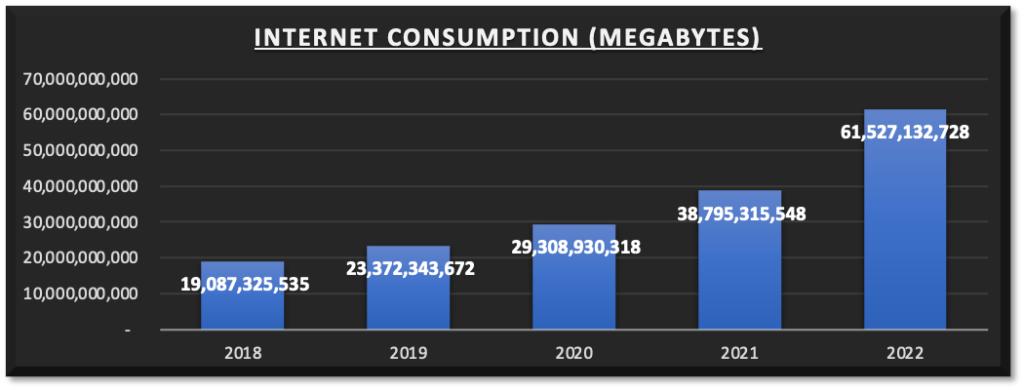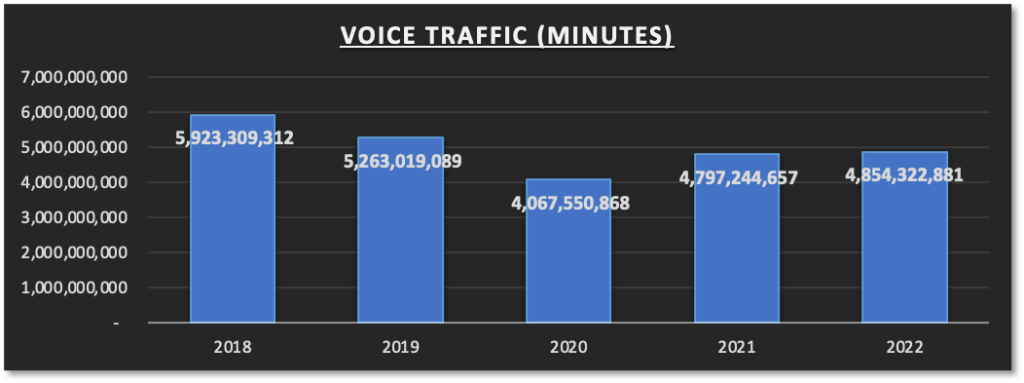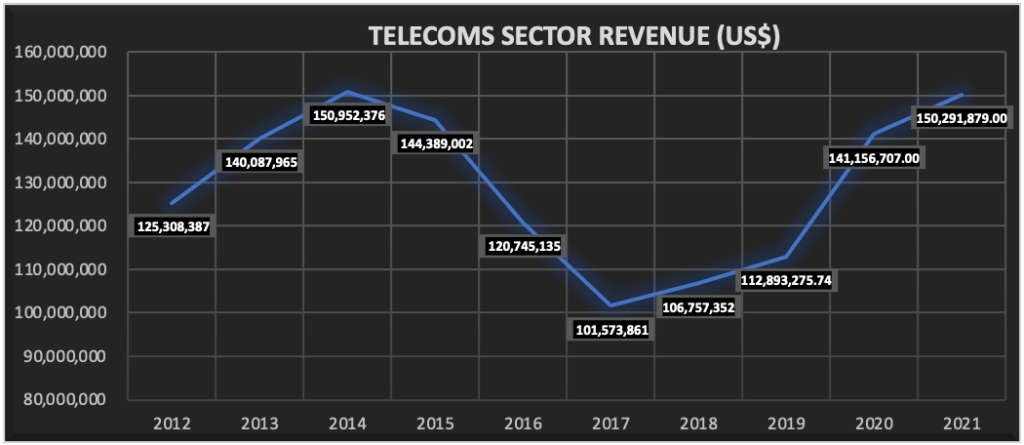INDUSTRY STATISTICS
MOBILE CONNECTIVITY

The sector is edging towards universal connectivity with 92% and 76% of population enjoying access to mobile communications services and broadband technologies.
MOBILE & BROADBAND PENETRATION

Nation-wide availability of telecommunications networks is enabling widespread adoption of mobile telephony (84%) and broadband communication technologies (46%).
INTERNET TRAFFIC

Year-on-year incremental growth in the use of internet services as broadband technologies increasingly become accessible and affordable for most residents.
MOBILE VOICE TRAFFIC

Demand for mobile voice is in steady decline as most residents embrace digital technologies and online services
SECTOR REVENUE PERFORMANCE

Regulatory intervention has restored effective competition and stabilized key markets, yielding an 11% year-on-year growth rate since 2017 and increased investment in mobile and broadband communications infrastructure.
The telecommunications sector of Liberia has experienced significant progress, driven by regulatory reforms and landmark initiatives led by the LTA. These regulatory actions have maintained an enabling environment for a vibrant and competitive telecommunications sector, attracting increased private investment, stimulating the expansion of telecommunications infrastructure and services to most parts of Liberia and facilitating affordable access and increased use of telecommunications services.
The sector is vibrant and growing with many licensed operators providing a myriad of services at competitive prices. Major telecommunications services being offered include, cellular mobile services, fixed and wireless broadband, telecoms infrastructure, FM radio, and digital terrestrial and satellite television services. As a result, most citizens and residents now enjoy access to a rich portfolio of services across most parts of the country.
Over 90% of the population is now covered by cellular mobile networks, and of that, at least 76% is covered by mobile broadband technology, enabling majority of Liberians access to internet and other telecommunications services. Over the last five (5) years, nearly one million additional Liberians got connected to mobile communications services. As of 2022, the sector recorded a total of 4.4 million mobile subscribers, representing a penetration rate of 84%. At the same time, nearly half of Liberia’s population (46%) were subscribed to internet services.
Investment in telecommunications infrastructure and services is generating significant value for operators as critical services go digital and most citizens rely on network services to carry out basic and important services. Following years of aggressive decline in sector revenue, competition-driven measures implemented by LTA saw a gradual and consistent improvement in revenue performance. Since 2017, the sector has experienced a year-on-year growth rate of 11%, restoring sector revenue to over 150 million by 2021.
The sector is vibrant and growing with many licensed operators providing a myriad of services at competitive prices. Major telecommunications services being offered include, cellular mobile services, fixed broadband, telecoms infrastructure, FM radio, digital terrestrial and satellite television services. As a result, most citizens and residents now enjoy access to a rich portfolio of services across most parts of the country.
Over 90% of the population is now covered by mobile networks, and of that, at least 67% is covered by 3G mobile broadband technology enabling majority of Liberians access to internet services. Over the last five (5) years, nearly one million additional Liberians got connected to mobile telephone services. As of 2022, the sector recorded a total of 4.4 million subscribers, representing a penetration rate of 84%. At the same time, over half of Liberia’s population (51%) had access to and used broadband internet. Across all sectors, Liberians now embrace the use of digital technologies to facilitate access to government services, to carry out commercial and financial transactions, to access remote learning, and for news and entertainment. Diffusion of ICTs has generated unprecedented innovation, efficiency and opportunity for the business community, the ordinary Liberian and the public sector and has generally contributed to the economic welfare of citizens and residents.
